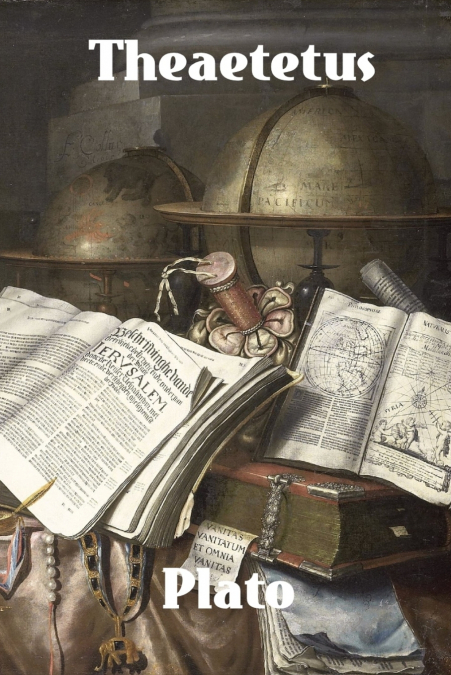
 Librería Desdémona
Librería Desdémona
 Librería Samer Atenea
Librería Samer Atenea
 Librería Aciertas (Toledo)
Librería Aciertas (Toledo)
 Kálamo Books
Kálamo Books
 Librería Perelló (Valencia)
Librería Perelló (Valencia)
 Librería Elías (Asturias)
Librería Elías (Asturias)
 Donde los libros
Donde los libros
 Librería Kolima (Madrid)
Librería Kolima (Madrid)
 Librería Proteo (Málaga)
Librería Proteo (Málaga)
The Theaetetus is a philosophical work written by Plato in the early-middle 4th century BCE that investigates the nature of knowledge, and is considered one of the founding works of epistemology. Like many of Plato’s works, the Theaetetus is written in the form of a dialogue, in this case between Socrates and the young mathematician Theaetetus. In the dialogue, Socrates and Theaetetus attempt to come up with a definition of episteme, or knowledge, and discuss three definitions of knowledge: knowledge as nothing but perception, knowledge as true judgment, and, finally, knowledge as a true judgment with an account. Each of these definitions is shown to be unsatisfactory as the dialogue ends in aporia as Socrates leaves to face a hearing for his trial for impiety.As one of the major works of Plato’s theory of knowledge, the Theaetetus was influential on Platonism from at least the time of the Skeptical Academy of the 3rd century BCE through the Neoplatonism of the 6th century CE. It has also been the subject of increased attention in modern times as a result of its influence on Edmund Gettier, who challenged the existing definitions of knowledge as a 'justified true belief' in a paper that investigated Plato’s theory of knowledge as outlined in this work.